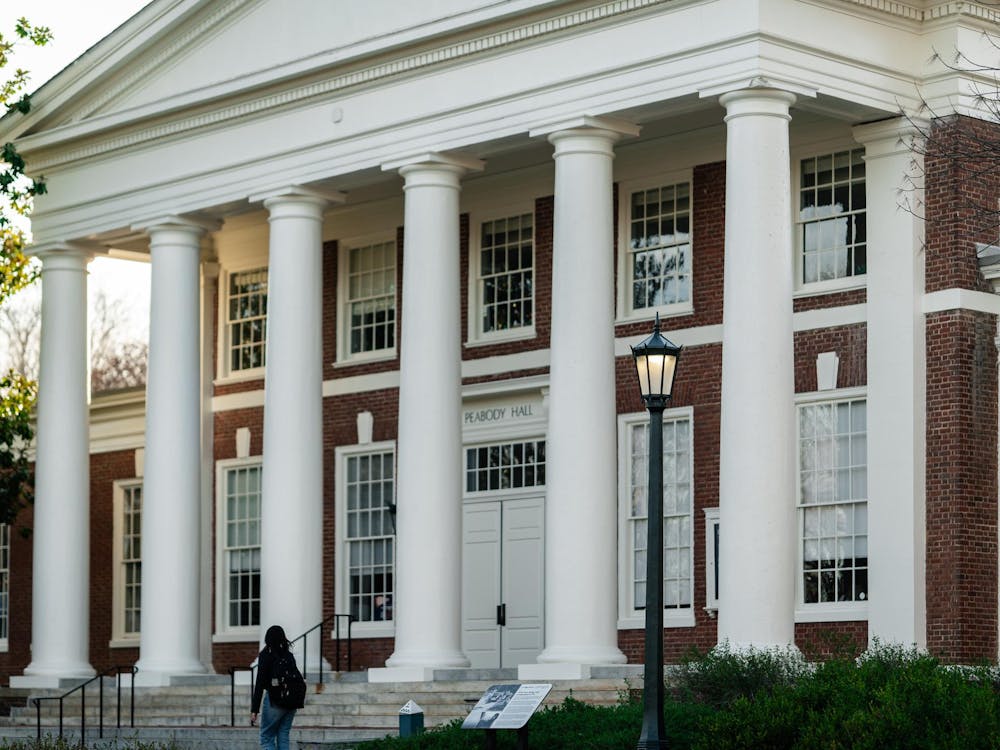Journalist and author Andrew Ross Sorkin spoke on the future of the global economy Friday evening at the Darden School.
Sorkin created the New York Times "DealBook" section and co-hosts CNBC's Squawk Box. He also wrote the book "Too Big to Fail" on the 2008 financial crisis and co-produced the HBO documentary adaptation.
Sorkin began by giving an overview of the 2008 financial crisis, the factors that played into the crash, and the various responses of the federal government.
The crisis may not have been averted by increased regulation, Sorkin said. Rather, enhanced capital requirements imposed by the Federal Reserve post-crisis decrease the likelihood of a similar speculative bubble as banks can more effectively absorb losses and manage risk.
He also discussed the future of the economy, and said it is unlikely to improve immediately.
“Over the next year and a half, I would argue that the U.S. is not going to get better,” he said. “There is light at the other end of the tunnel but we’re going to need some patience.”
One cause is the current mindset of U.S. investors. Terming it “the A.D.D. nation,” Sorkin described an environment in which investors prioritize short term action that immediately increases profits but do not encourage firms to invest in their business. Walmart, the second largest retail company in America, recently felt the effects of this investing environment.
Sorkin said the retailer “is a really interesting case study in this country” due to its size and influence on the economy.
When the company announced on Wednesday a projected profit decrease of as much as 12 percent next year on account of its recent investments, including raising wages, its stock price fell 10 percent, bringing down its valuation by $25 billion over the course of less than a week.
Sorkin also discussed the 1999 repeal of the Glass-Steagall Act, a regulation passed by Congress in 1933, mandated investment banks cannot engage in commercial banking. The act forced firms like JPMorgan Chase, which had both commercial banking and an investment banking components, to split.
Many believe the act, had it been in place, could have alleviated the effects of the 2008 crisis. Sorkin, on the other hand, maintains the law would have had little impact.
“I’m of the view that the repeal of Glass-Steagall didn’t have much to do with the last financial crisis,” Sorkin said.
Bear Stearns, Fannie Mae, Freddie Mac and Lehman Brothers — none of which had a commercial banking component and were covered by Glass-Steagal — were the first to fail during the crisis, he said.
The presentation concluded with a lengthy question and answer session, where Sorkin responded to audience inquiries on topics ranging from high-frequency trading and the role and effects of technology on the economy to the future of journalism and media.
The presentation, open to the public, was hosted by the Jefferson Scholars Foundation and the Shadwell Society, which supports the foundation. In a separate session Friday afternoon, Sorkin spoke privately with Jefferson Scholars.
Shadwell Society Chairman David Bowlin, a Class of 2001 alumnus, said his group believes Sorkin has an immeasurable impact on the national dialogues covering the American economy.
“[Sorkin] is the defining media voice of this generation,” Bowlin said.






